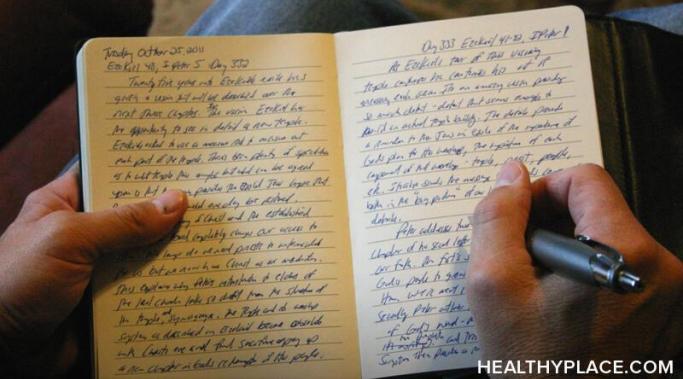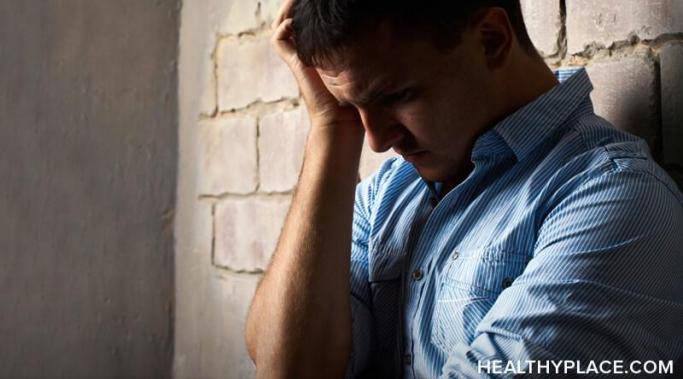After enduring childhood trauma and developing posttraumatic stress disorder (PTSD), I battled an intense fear of loss. Not only was I sexually assaulted at the young age of four, but that same boy threatened my safety as well as my family's. If I told anyone what he did, he would retaliate. While I can rationalize in adulthood, my young brain couldn't comprehend the validity of his menacing warnings. I truly believed my family's lives depended on my ability to stay quiet. Now, in trauma recovery, I fear loss.
PTSD Recovery Tips
Feeling safe after enduring trauma or developing posttraumatic stress disorder (PSTD) can be a challenge. Growing up, I had a persistent uneasy feeling in my gut that manifested as a constant stomach ache. After being sexually assaulted by another (though older) child, I found myself unable to feel at ease in my own body. I worried not only about my personal safety but also my family's — especially since the boy threatened to hurt me and my loved ones if I told anyone what he did to me. Feeling safe with PTSD turned out to be very hard.
The idea of healing trauma through writing might feel too good to be true. When I was a kid, I used to sit on my bed in the moonlight and craft fictional stories in my mind. I'd spend Friday nights with fairy lights decked across my room and draft poetry and lyrics about my current situation. I'd journal before falling asleep to release any fear or obsessive thoughts that were clouding my head. Little did I know I was healing trauma through writing.
When healing from trauma, I have found that having a community is important. Although there are times I feel tempted to isolate myself when I'm struggling with my mental health, I have always felt better after reaching out to loved ones for support. This is especially the case when I seek out people who have been through similar traumas or share similar passions. Finding a community in which I feel welcomed and safe has done wonders for my healing from trauma.
You can reclaim your power after trauma, although it can be challenging. A common issue I battle from my posttraumatic stress disorder (PTSD) is the feeling of powerlessness. I've found it's hard to foster empowerment after enduring a difficult or complex trauma — even when it gets set off years later. While PTSD might be an ongoing battle for many, with the effects of trauma often lingering, there are ways you can lessen its weight. Here are six habits I've been practicing to help reclaim my power.
I realize I need to be my own hero, but it's hard. As someone with a highly self-critical brain and a history of trauma and posttraumatic stress disorder (PTSD), I often struggle to take control of my own healing. In my experience, it's tempting to turn to others during difficult moments (which is completely okay and necessary sometimes) rather than turning inward and finding my own resilience. Self-sabotage takes merit over self-love and self-care, and before I know it, I'm spiraling into anxiety and grief, looking elsewhere for someone to do the work for me — to be my hero.
Seeking validation from others is often demonized today. We are made to feel guilty for this human desire — for craving attention, reassurance, and support. And while it's healthy to give yourself the validation you're searching for, shaming yourself for seeking validation from others will not help you.
Talking about trauma is not an easy feat. But if you're constantly reliving a specific traumatic event or cycling through negative thoughts surrounding the trauma, confiding in a trusted loved one can help you feel less alone. A supportive community is integral to trauma recovery, and you don't have to go through it all alone. You can tell about your trauma.
Posttraumatic stress disorder (PTSD) impacts various areas of life. When it comes to romantic and intimate relationships, PTSD can make it especially difficult to get close to someone.
Dealing with posttraumatic stress disorder (PTSD) at work can be stressful. Navigating flashbacks, panic attacks, and hypervigilance is difficult in any setting, but managing these symptoms in a workplace can feel impossible. When you're constantly worrying about judgment from your coworkers and peers, it can be hard to focus on the job at hand.









